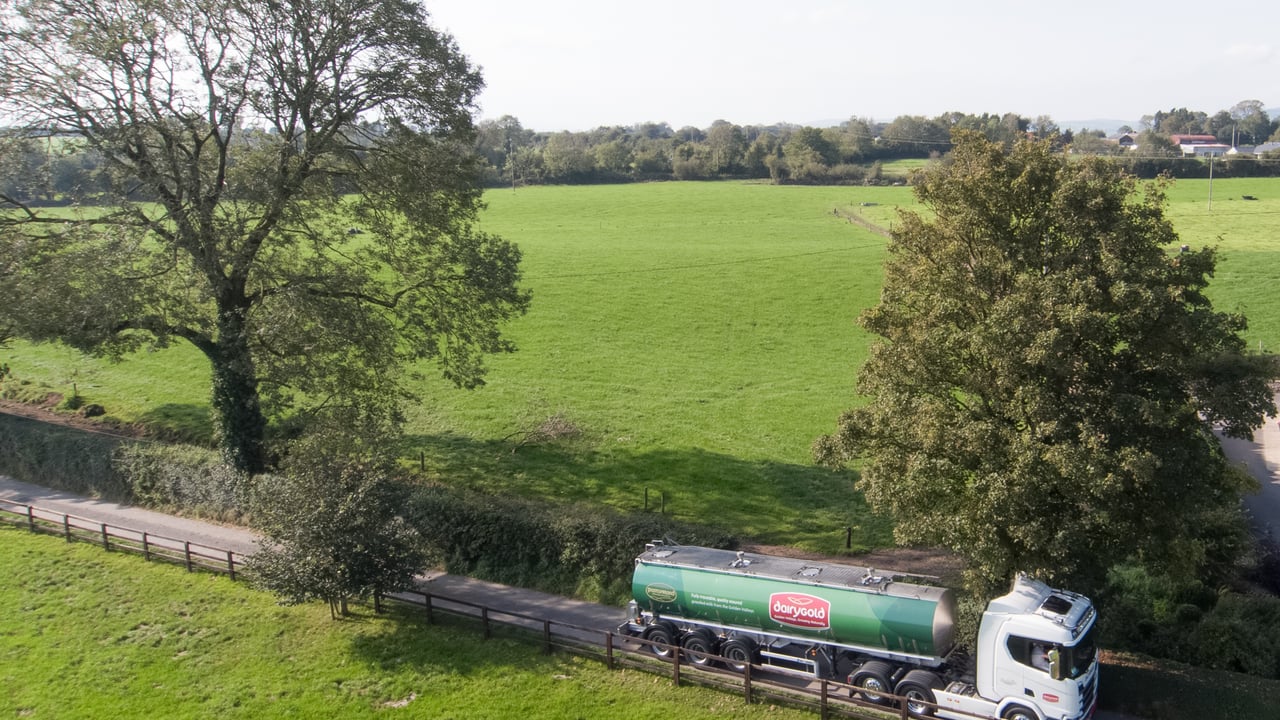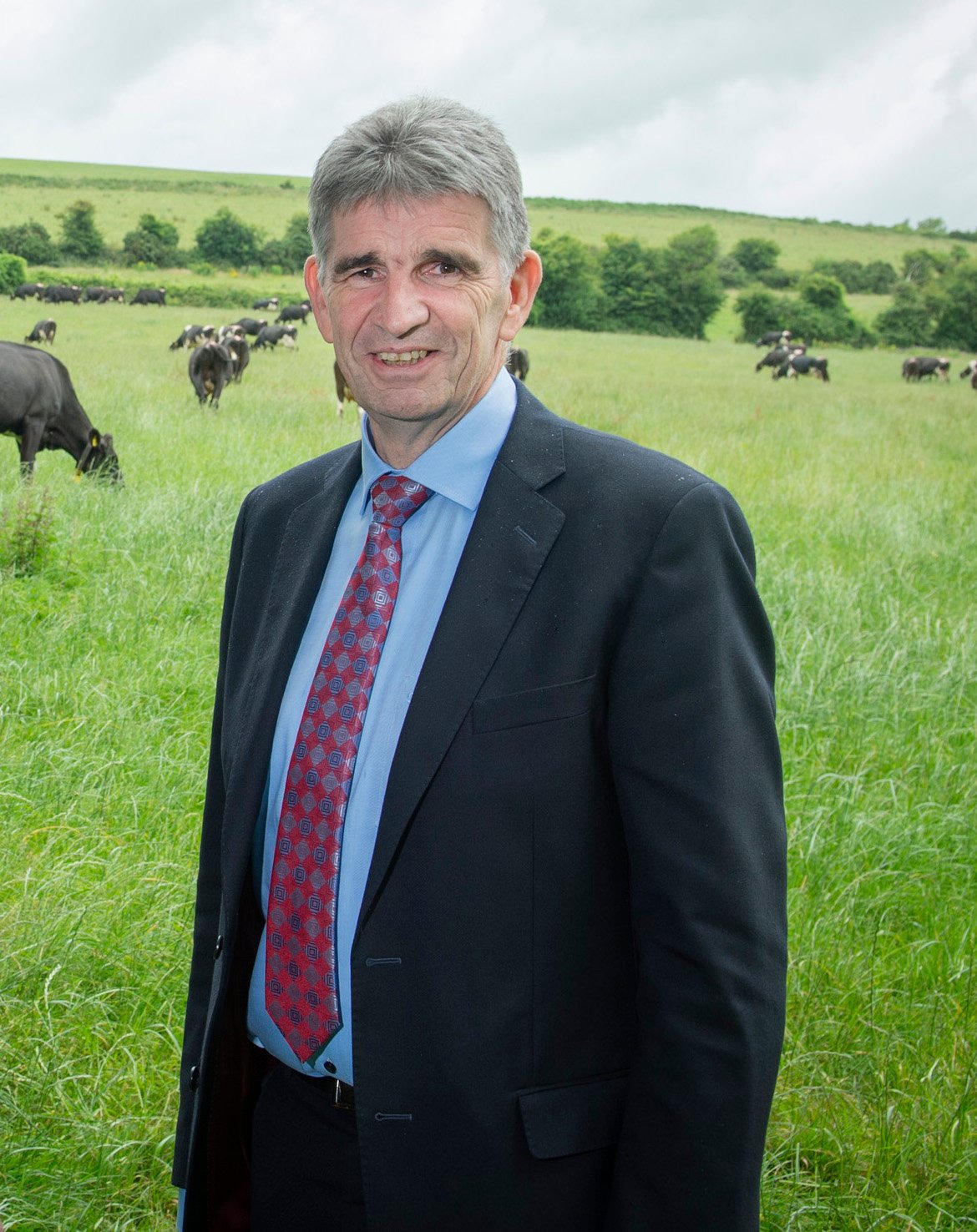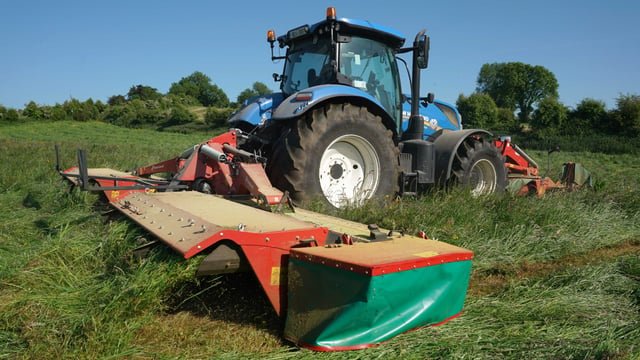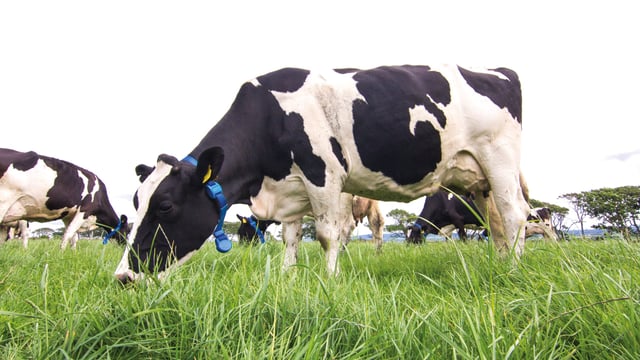Dairygold expects milk volumes over 1.45 billion litres this year
Dairygold is currently anticipating that milk volumes will reach over 1.45 billion litres over the course of this year.
In 2024, 1.38 billion litres of milk were collected and processed from Dairygold milk suppliers, which was down 2.1% year-on-year.
This was particularly due to the adverse weather conditions in the first half of the year.
By comparison, the Munster based co-op's milk volumes stood at 1.48 billion litres in 2021 and 2022.
"We've had a real strong month of March, we were up nearly 6% on 2024. The milk volumes coming in in April are similar to the volumes we were receiving back in 2022.
"So the expectation is we're going to achieve 1.45 billion litres and that's with 4% less cows than there was in 2022," Michael Harte, Dairygold chief executive, told Agriland.
"At the moment, the volumes that we're receiving on a week-by-week basis is up 11-12% on 2024.
"On that basis, we are expecting, with normal weather patterns from here to the rest of the year, we should be ahead of 1.45 billion litres," he said.
Harte said that there is scope for increasing milk volumes, but he believes this will be achieved through genetic gain, rather than increasing cow numbers.
In terms of the future outlook for milk price, Harte said that "the overall markets are not too far off the 50c/L at this moment in time".
The Dairygold chief executive said that global milk supply currently being constrained is positive for the industry and for a strong milk price.
"The big threat over all of this is tariffs and what's going to be the implications of tariffs. It's too early to really figure out all of that because of milk flows and where product will be sold going forward," he said.
Harte added that he hopes Europe and the US "sit down and negotiate a much more favourable position than what's currently on the table".
Dairygold today (Wednesday, April 9) reported a turnover of €1.4 billion for 2024, up €10.6 million on the previous year.
The Munster-based dairy co-op said the performance reflected increased dairy market returns, which were partially offset by a decrease in milk production and lower feed and fertiliser prices.
Earnings before interest, taxes, depreciation, and amortisation (EBITDA) stood at €65.4 million last year, up €10.4 million (18.9%) on the 2023 figure.
Harte said that 2024 brought an end to key investments by Dairygold in terms of processing infrastructure.
The new casein plant, which was fully commissioned in early 2025 and replaced a 40-year-old facility, marked the last big investment at a cost of €46 million.
The co-op’s year-end net bank debt was €157.3 million, an increase of €12.8 million (8.9%) on 2023.
This was after investment in capital expenditure of €48.9 million (net of grants) and making the final payment of €13.1 million for 59% of the share capital of subsidiary Vita Actives Limited.
Dairygold said that “overall net bank debt levels remain at a very manageable level”.
In March 2025, the board of Dairygold approved the implementation of a “Business Optimisation Programme”, which in conjunction with 2025 budget initiatives, will target €14 million in cost savings between 2025 and 2027.
Harte confirmed that 70 positions across the milk processing and retail divisions would be cut over the three-year period.
Dairygold’s Milk Supplier Census, carried out last year, showed that around 300 of the co-op's current suppliers (around 2,500) plan to retire by 2030.
The farmers planning to leave the sector are supplying an average of 170,000 litres per year.
Where farmers are exiting the sector, Dairygold chair Pat Clancy noted that "it's important that we try keep the land in dairy".
The co-op is planning to appoint a succession manager who will speak with farmers who are retiring about how to keep the land in the sector.
Clancy said that there are around 10 to 15 new entrants joining Dairygold per year, but this can vary on a given year.
The census also showed that a fifth of Dairygold milk suppliers have an average of 32 cows.
Over recent months, the dairy industry has seen significant announcements in terms of mergers between various co-ops.
Yesterday, Arla Foods, which is based in Denmark, and the German-based DMK Group announced a proposed merger to create “the strongest dairy cooperative in Europe”.
In December, Dutch dairy cooperative FrieslandCampina and Belgian company Milcobel have announced their intention to merge.
Closer to home, Arrabawn Tipperary Co-operative Society was formally established at its inaugural board meeting on February 28.
Michael Harte said that Dairygold is not currently involved in any discussions "from a partnership or merger point of view".
"Our position has always been that we're open to any partnership or collaboration or merger, looking at any opportunities that would be of benefit to our members.
"We seen two massive announcements in the last number of months. You had Arla and DMK yesterday, you had FrieslandCampina and Milcobel before Christmas. They are significant entities.
"Overall, I think it probably does raise questions for the Irish dairy industry. We are open to any partnership or collaboration.
"In relation to collaboration, we're always talking to other processors in relation to how we can utilise our assets better and it's ongoing," he said.






